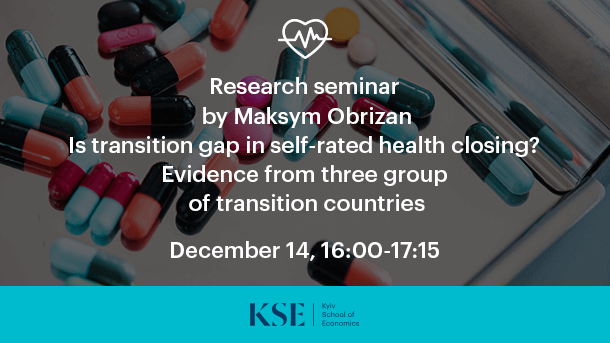- Kyiv School of Economics
- Private: Calendar
- Research seminar “Is transition gap in self-rated health closing? Evidence from three group of transition countries”
Description

Respondents from post-communist countries have been found to systematically report lower levels of happiness and self-rated health. While the first welfare gap in happiness has closed recently, the second transition gap in self-perceived health only started to close. Specifically, this paper shows that treating all transition countries as a homogeneous group may be misleading and divides 28 transition countries into three groups.
As result, in the most recent 2016 round of ‘Life in Transition’ survey, transition countries in Southern Europe are no longer different from non-transition nations in terms of their self-rated health. Although the gap in self-perceived health for transition nations in Eastern Europe is present in a basic model, it becomes less statistically and economically significant when subjective beliefs and macro-level variables are added. Countries from the former Soviet Union and Mongolia remain the only group in which respondents report 16.5-29.1% lower probability of ‘Good’ or ‘Very Good’ health compared to other transition and non-transition countries. Controlling for communist party membership, ideological beliefs and macro-level variables somewhat reduces the gap for the former Soviet Union and Mongolia but it remains significant in multiple robustness checks.
Although the gap in self-rated health now applies to only one group of transition countries, it remains an important empirical puzzle with far-reaching implications for health policy, demand for health care and the process of transition.
